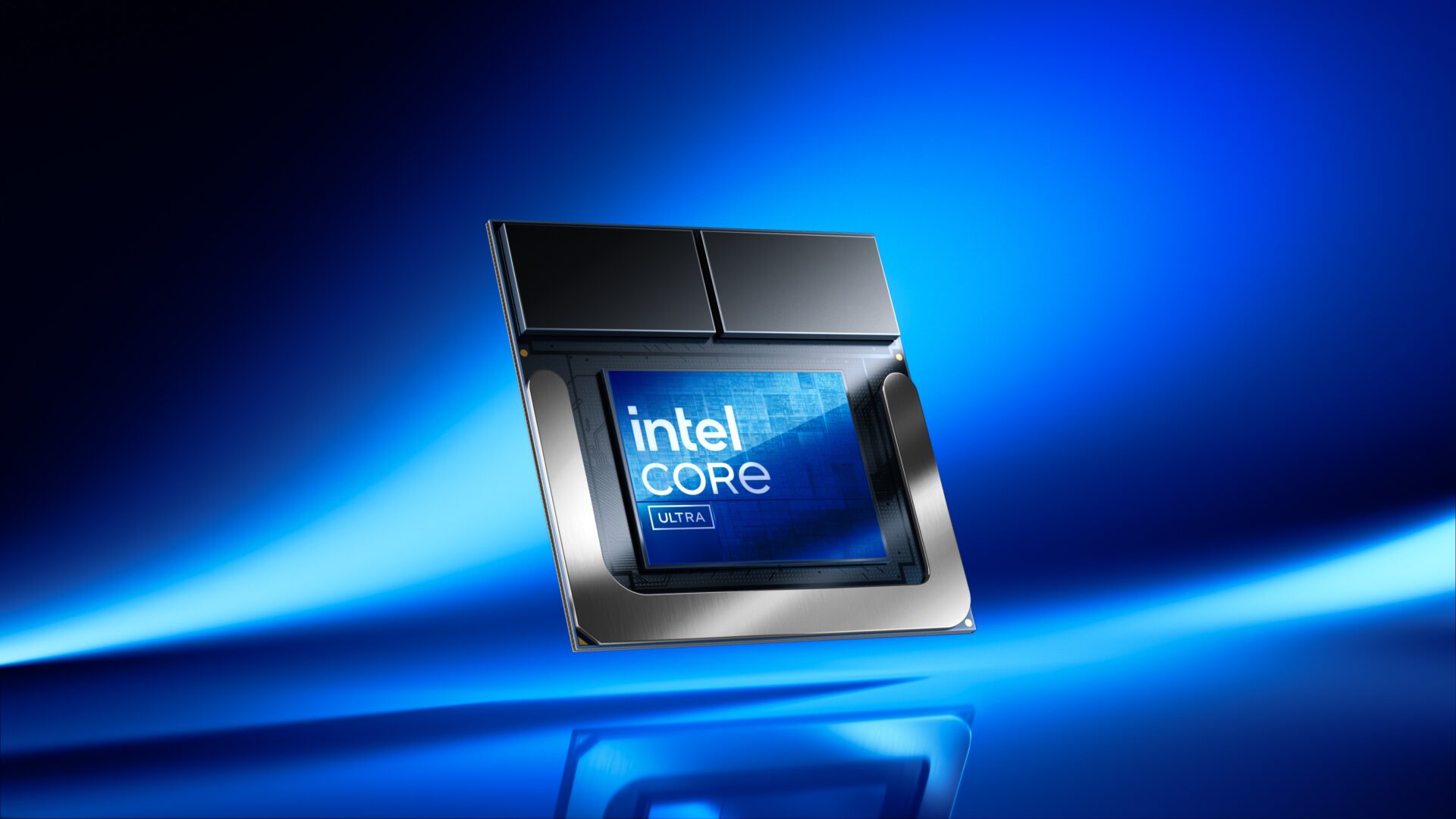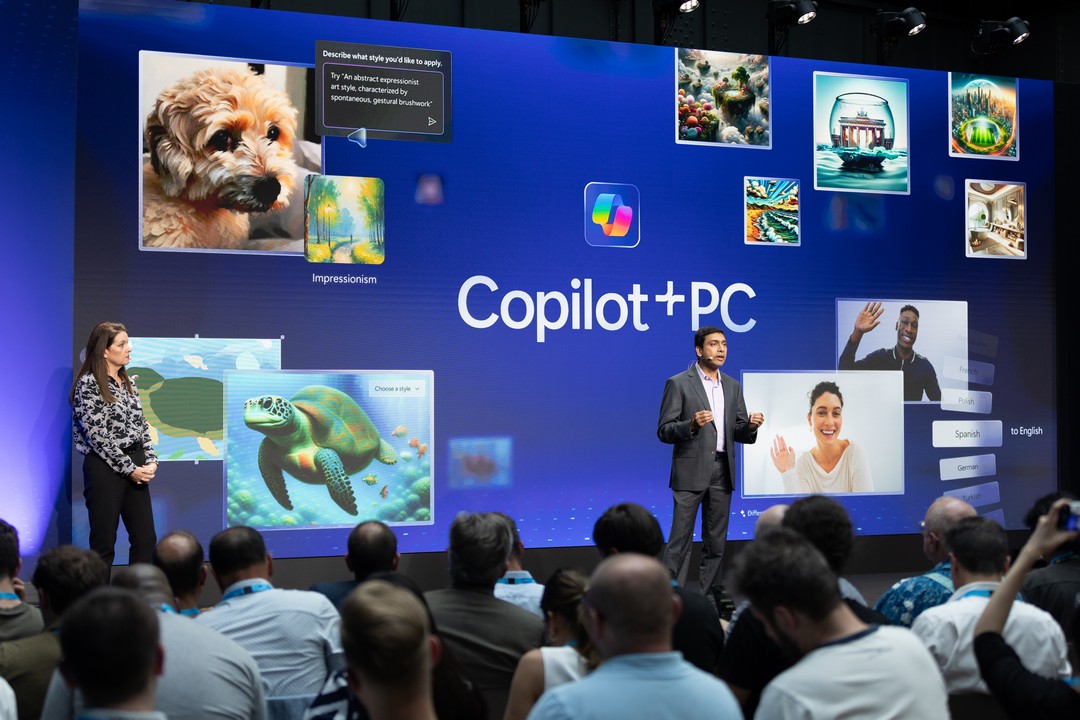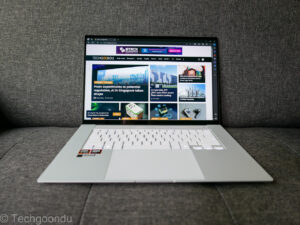
There have been many times when the headline “empire strikes back” could have applied to Intel but perhaps none is more apt than its launch yesterday of the much-awaited Core Ultra 200V processors that promise to retake the stage from rivals that have upstaged it.
The new processors, teased earlier this year under the codename Lunar Lake, promise better battery life and improved performance – key areas where rivals Qualcomm and AMD have taken the lead this year for so-called AI PCs.
Designed with “no rock unturned“, as Intel executives described things, the Core Ultra 200V flagship processor is said to offer up to 14 hours of battery life running the popular UL Procyon Office Productivity test, ahead of Qualcomm’s 9.5 hours and AMD’s 10.1 hours, while running on the same PC designs.
How it’s done this, as Intel had shared at Computex in June, is through a number of improvements, such as using a “thread director” that pushes tasks to more efficient cores in the CPU when possible to reduce battery use. It’s among dozens of improvements, including adding memory on the chips.
Just as importantly, Intel yesterday emphasised that its chips which use the traditional x86 architecture won’t have compatibility issues that Qualcomm’s Arm-based PCs still have when running some Windows apps.
Plus, the new Intel processors have the muscle, now boosted by a new graphics processing unit (GPU) architecture, to play games smoothly – something that PCs running Qualcomm don’t do as well in today.
Clearly, the Core Ultra 200V processors are the most consequential products for Intel in years, as it faces sliding market share and pressures to return to its technology leadership position.
Earlier this year, Microsoft had surprised many by launching its line of Surface laptops with Qualcomm’s Snapdragon X processors, which delivered improved performance and battery life over longtime chip partners Intel and AMD.

Qualcomm’s Arm-based designs, popular in smartphones, are more efficient because they break up tasks into smaller units and only activate parts of a chip needed to accomplish them. Traditional x86 designs, despite years of optimisation for efficiency, have lagged in this area, at least until now.
This issue had led Apple to drop Intel back in 2020 for its own Arm-based designs. Today, it’s M3 chips lead the pack in power and performance in many areas. This had likely led Microsoft to push for an Arm-based design for Windows software as well.
The dramatic developments in the past six months have disrupted the steady competition between AMD and Intel over the years, turning it into something of an existential battle.
As the first Qualcomm-based Windows laptop arrived in shops in the past month or so, AMD Ryzen AI 9-based PCs offering as much performance and battery life have appeared as well (we reviewed the Asus Zenbook S16 here).
Now, Intel says its Core Ultra 200V processors will be in PCs arriving later this quarter, in time for the holiday season. Late to the game, it now has the chance to catch up quickly.
It helps to have industry partners behind you, of course. At the Core Ultra 200V launch in Berlin yesterday, Intel brought on Google to show off AI apps and Microsoft to talk up its Copilot+ AI features, which Intel PCs can now deliver with its new chips.

There were also the important PC makers, such as Acer, Dell and Lenovo, which will use the Core Ultra 200V chips in their new laptops.
You can bet that these PC makers are hedging their bets on the various new chipmakers, now that they have a choice. Qualcomm, you’d imagine, will already have new designs up its sleeve to counter Intel’s new chips. Nvidia and chipmaker MediaTek also have an Arm-based chip in the works.
For now, the major PC makers’ backing for Intel is also a reminder that Intel still is the dominant chipmaker for consumer PCs – Arm-based machines including Macs account for about 11 per cent of the market while Intel owns more than 70 per cent of the remaining share of x86 PCs.
For consumers, the good news is that the increased competition will lead to more interesting offerings from PC makers in the months ahead.
Yes, it might be confusing with all these labels like AI PC and Copilot+, but for a change, laptop makers will be rolling out new PCs more frequently and likely discounting older – but still very recent – models.
And for those seeking the best battery life and performance, especially on their laptops, the engines behind these everyday machines have now undergone the biggest and fastest upgrades in recent years. That’s a good thing.






